How your child can learn EVERYTHING through ANYTHING (in this case, Harry Potter).
A few weeks ago I found myself in constant power struggles with my 7-year-old. I wanted him to be advancing more in maths and to be consistent with his Hebrew work. To be learning more, doing more, keeping up with grade-level – and dare I say it – exceeding grade level.
One day, as I was sitting there trying to refocus my distracted kid it dawned on me: this did NOT interest him. None of the agendas and hopes and dreams I had for him held any meaning to him. He didn’t want to because he didn’t feel any intrinsic motivation to study. It was boring and it wasn’t meaningful to him.
If you’ve ever found yourself in those shoes you know how many power struggles and stressors ensue when we are trying to force education on an uninterested child. The truth is – you can force someone to memorize facts, but we all know you can’t force children to be genuinely interested.
So then, what are you to do? Do you simply follow the child’s interest and forget all about core subjects? It’s liberating to think – I can ignore everything standardized and trust in my child’s development. The issue here is that in many countries and states it’s actually not legally possible to fully unschool in this way. And, even if it is legal, many parents – like myself – don’t feel comfortable (at least as of yet) with a radical approach. For many reasons I still feel my family needs to follow along somewhat the common curriculum – at least to a minimum degree.
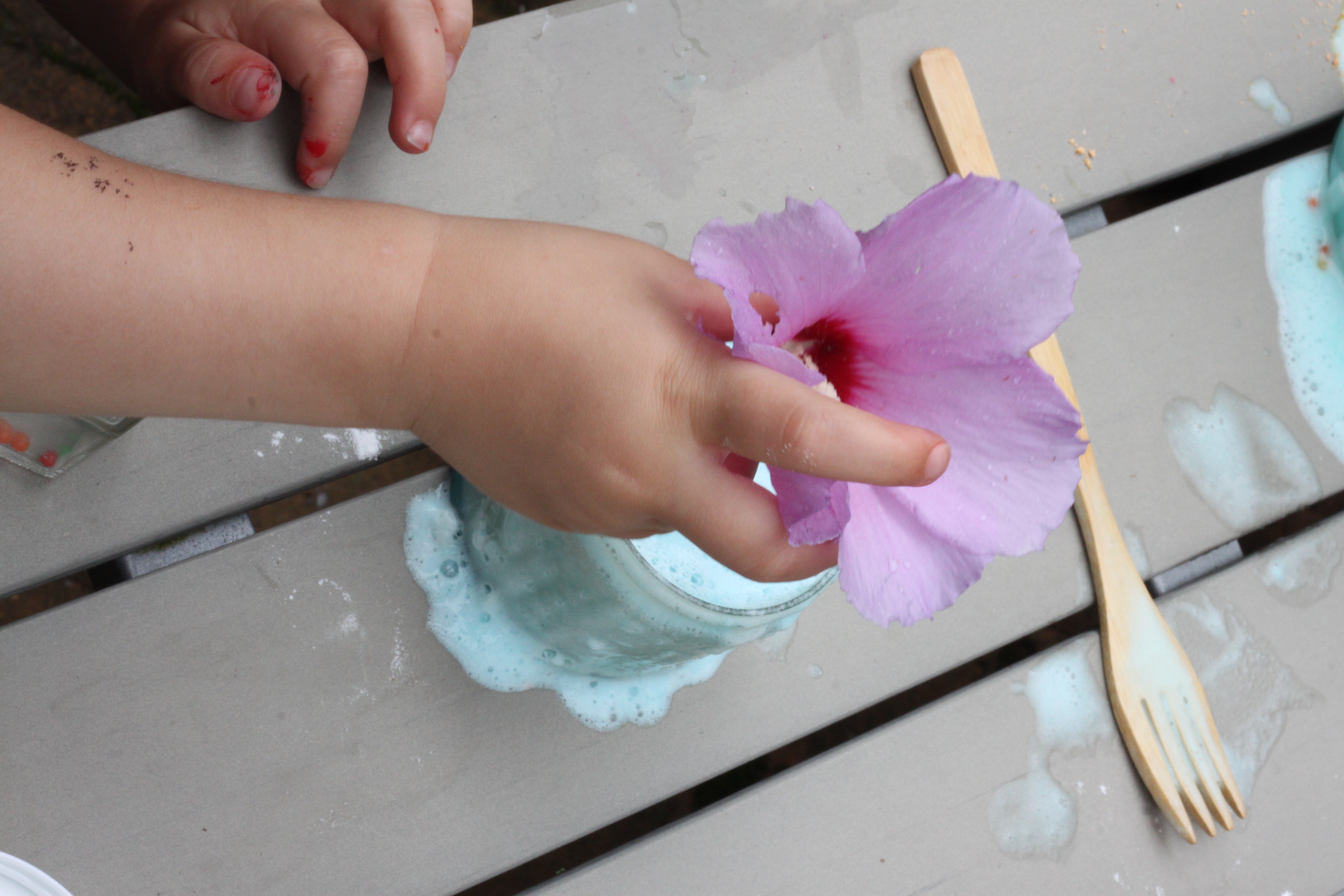
I feel I’m not quite there at the radical unschooling, it would be incongruent with my family and culture at this moment in time – and I think would alienate my children further. So, I have a very loose commitment to keep our kids pretty much kinda-sorta loosely on par with what they would have been doing in their grade level – give or take a year. I do not take this very seriously but I use it as a guideline.
Perhaps radical unschooling doesn’t feel right to you but neither does following a complete homeschool curriculum. Maybe you’re interested in alternative educational ideas and in promoting intrinsic interest in your child – but you’re unsure how you can both follow their interests and offer them a solid education. You’re wondering, perhaps, like I was, HOW you can ensure your children learn those subjects that our culture has crowned “the basics” such as math, science, and English if you’re also following their interests.
Do you simply follow the child’s interest – yes we can talk about spiders, sure! Let’s explore mermaids. Definitely – robots it is! And separately teach them the basics. Like most of the time we do whatever you’re interested in but I will also force you to sit down with me and finish this thing? Listen, sometimes this is necessary – and I definitely do this to an extent at the moment with our math and Hebrew language curriculums. But for the most part, many of us opt out of mainstream education specifically because we don’t want to force education.
Often it feels like the very things our kids are most interested in – such as soccer, fashion, Minecraft or Pokemon – may be in direct opposition with our idealized fantasy of what we wish they took an interest in (Math! Science! Literature!). We find ourselves categorizing their interests as bad and our goals for them as good – driving a massive gap between parent and child and inviting in ever more arguments and power struggles.

Ever find yourself bribing your child – if you finish one more page on this worksheet then I’ll let you read your book? First, let me teach you long division and then you can play Minecraft? I know I’ve been there.
 You can learn everything through anything - Julie Bogart @BraveWritervia @ParentingJunkieTweet This
You can learn everything through anything - Julie Bogart @BraveWritervia @ParentingJunkieTweet ThisThere’s good news! It doesn’t have to be this way! We can in fact follow our child’s interest AND help them learn “the basics.”
In her book, The Brave Learner, Julie Bogart states “You can learn everything through anything.” To do this, look at the child’s interests and see how many possible interpretations there can be. Julie Bogart calls this the homeschool cloud.
Here are some examples of the way we applied this to our impromptu, unplanned “Harry Potter Homeschool Study Unit.” It wasn’t planned from ahead of time, but it was certainly intentional at the moment.
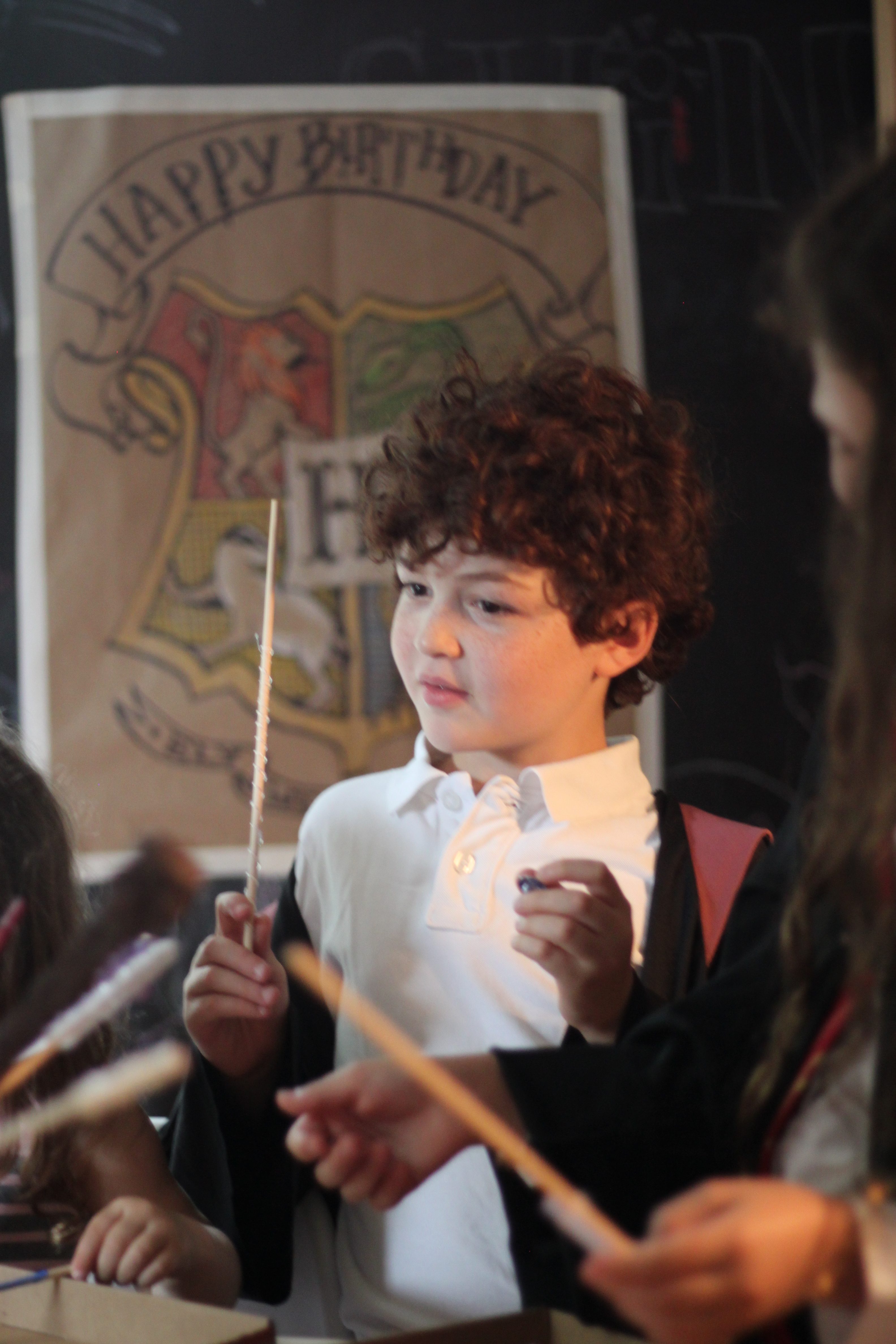
English:
- Reading Harry Potter books of course! Whether my son was reading it himself (he got up to book 5 ½ at which point he switched to audio book) or Listening on audible (which helps to learn the annunciation properly) with me reading the odd chapter here and there. Of course, reading is one of those core skills – and it leads to greater vocabulary and asking me how to spell things or what certain things mean.
- Using this Harry Potter Vocabulary builder to learn how to pronounce (and spell) the hardest words in the Harry Potter books.
- Writing: Practicing cursive writing with a quill and ink.Making letters with a wax seal set.
- Discussing the characters, the motifs, alternative endings. As well as discussing references to popular culture, to other great works. For more ideas you can checkout: Unit study from Emily at Build your own library
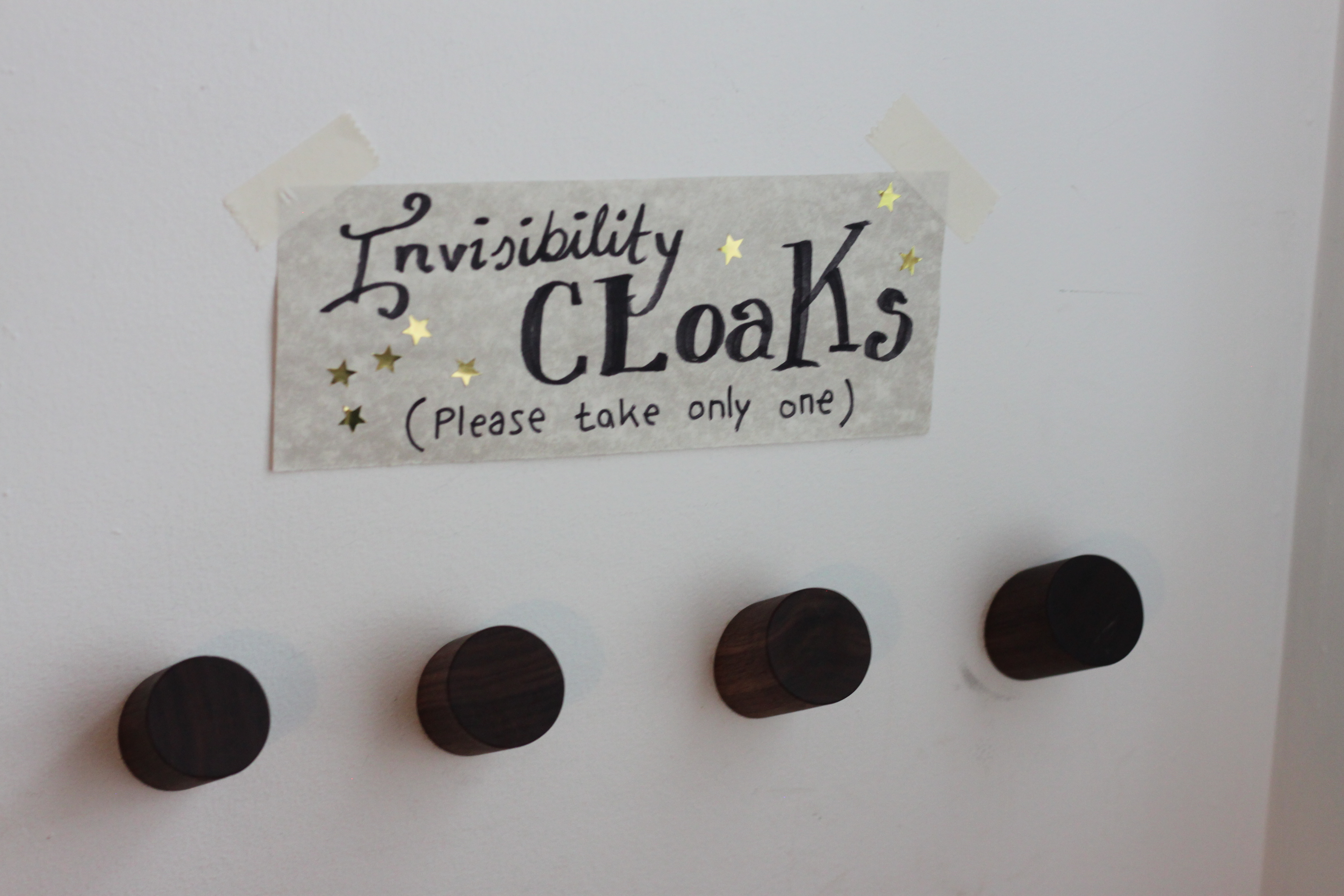
History:
- Discuss the influences on JK Rowling’s writing style.
- Discuss the Gothic and Medieval architectural influences of the design on of Hogwarts
- Read Who is J.K.Rowling?
Math:
- Running an HP Etsy Shop which not only focuses on math – pricing, calculating the cost of materials to make the items against the amount to sell them for, but also entrepreneurship – what type of customer service can we offer?
- Budgeting for a Harry Potter Birthday Party: How much is our budget, how much do the materials cost for the items we want to make, etc.
- “If it takes me 2 minutes to read each page and there are 30 pages in a chapter and 17 chapters in the book – how long will it take me to read the book?
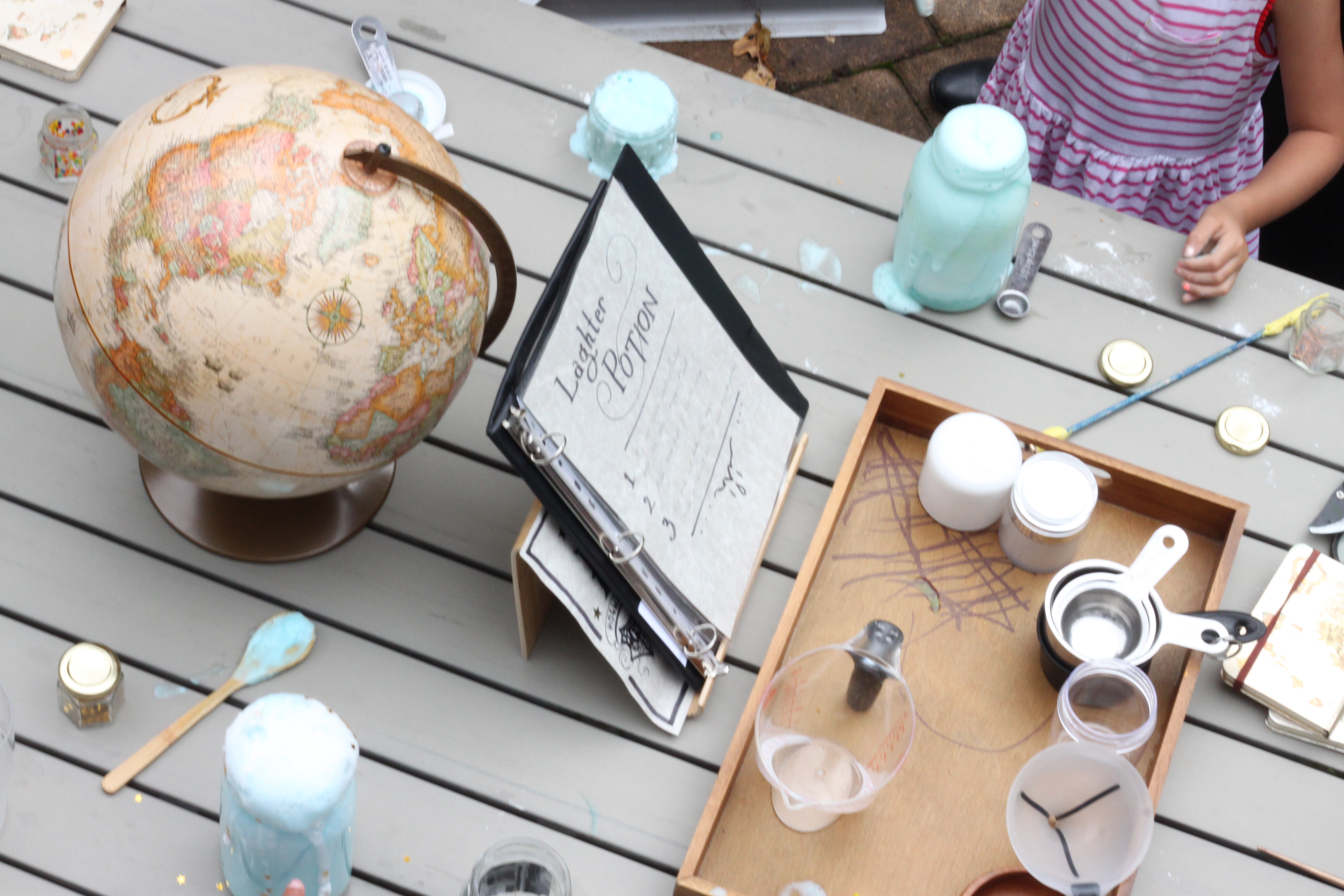
Science:
- Downloading a science curriculum and replicating some of the potions that Harry Potter has to study in potions and his defense against the dark arts class.
- Studying zoology and learning more about the mythical creatures.
- Cooking: Finding recipes from the Unofficial Harry Potter Cookbook and creating them.

Art:
- Drawing the creatures and discussing mythical vs real creatures. Mythical creatures coloring book.

Theatre:
- Dressing up and acting out scenes, pretending and noticing different accents.
- Watching the movies. Instead of watching just the Harry Potter movie itself also watch the making of the movies and the interviews with the actors.
- Noticing the difference between movies and reality.
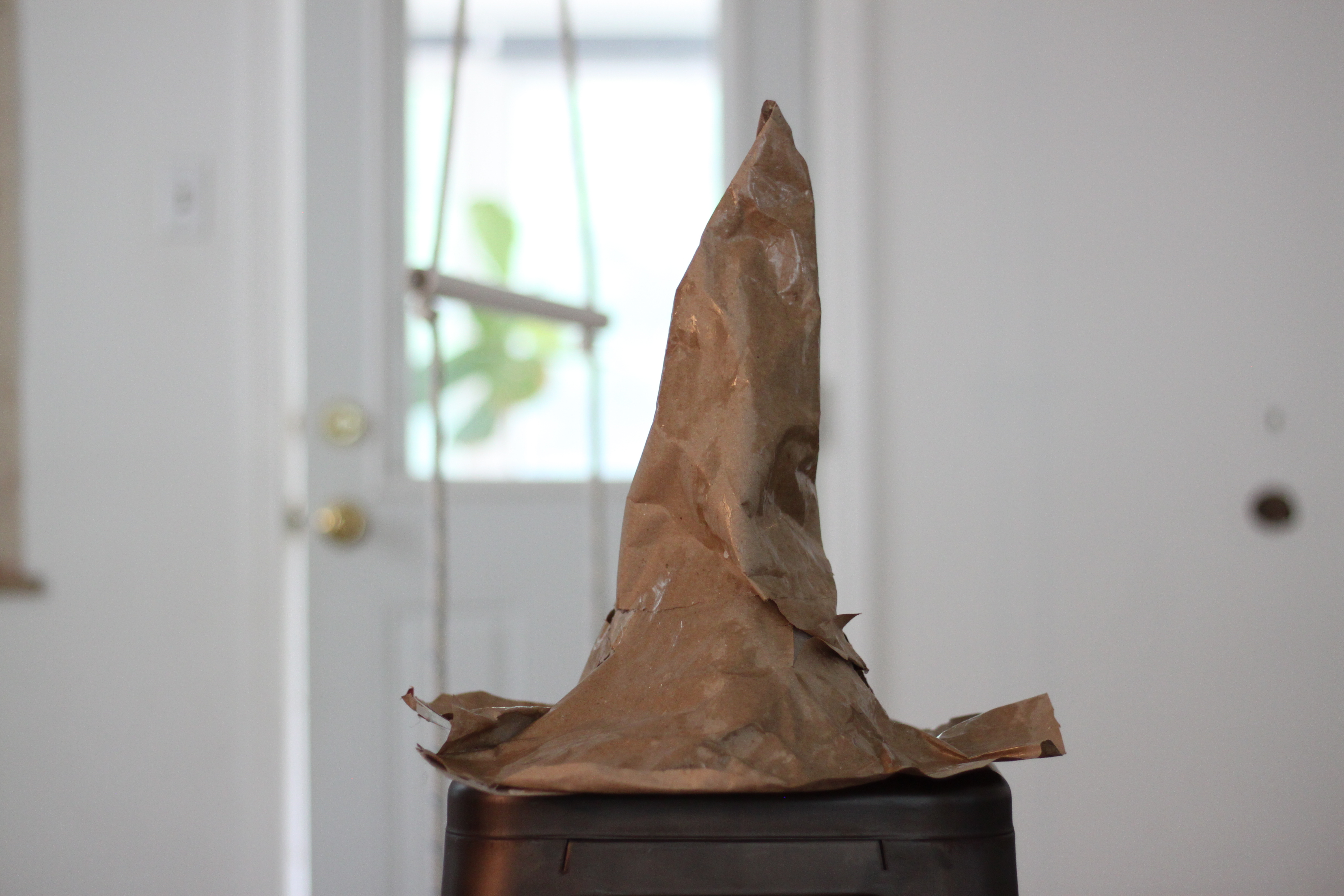
Philosophy:
- Philosophizing about whether or not we’re muggles.
Event planning and bringing it all together:
- Planning a Harry potter style birthday party – where we’ll learn to budget, create an atmosphere we desire, be good and gracious hosts, and create fun tasks for our friends.
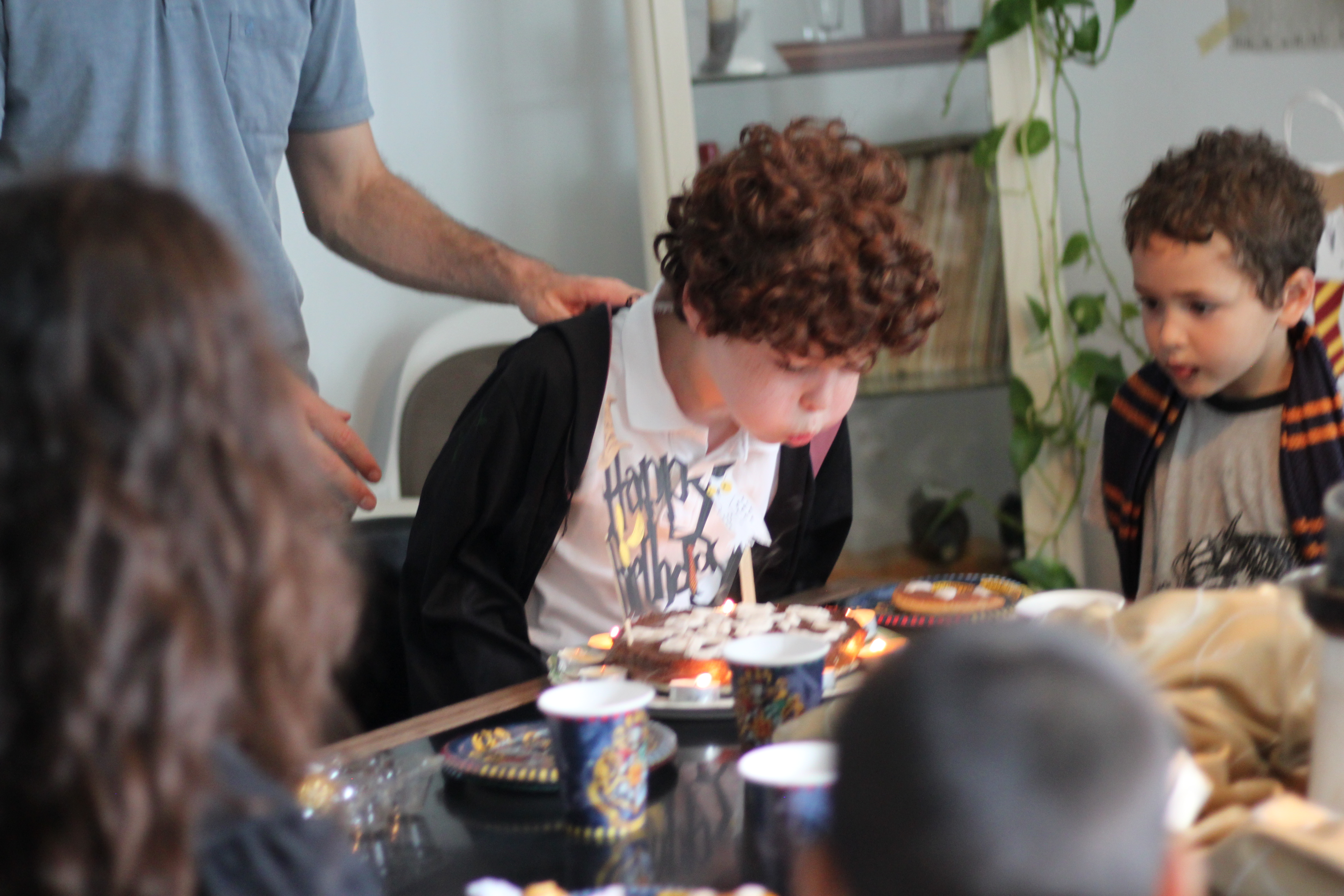
Through just one subject we’ve accessed math, literature, history, art, history of art, drama, business, programming and much more.
Imagine instead that I had classified reading Harry Potter as purely for pleasure. Or worse – that I tried to mute his interest in it. By going through Harry Potter as our “curriculum”, the doors to his mind were opened and together we had a magical learning experience.
Don’t think for one moment that this is only possible with Harry Potter. Whatever your child is interested in, from spiders to LOL dolls – I know you can expand it and learn everything from there.
More Resources:
Here’s a link to our sorting hat game! And here’s one to the wand-making tutorial we followed.
Here’s the link to the Etsy shop mentioned.
Spielgaben – a great homeschool resource (remember to mention The Parenting Junkie).
For more information on child-led learning and steps to follow your child’s interest and other examples of how this could work checkout the podcast episode.
Want to see even more footage from our child-led learning Harry Potter Homeschool curriculum? Watch the 20min full version video here.
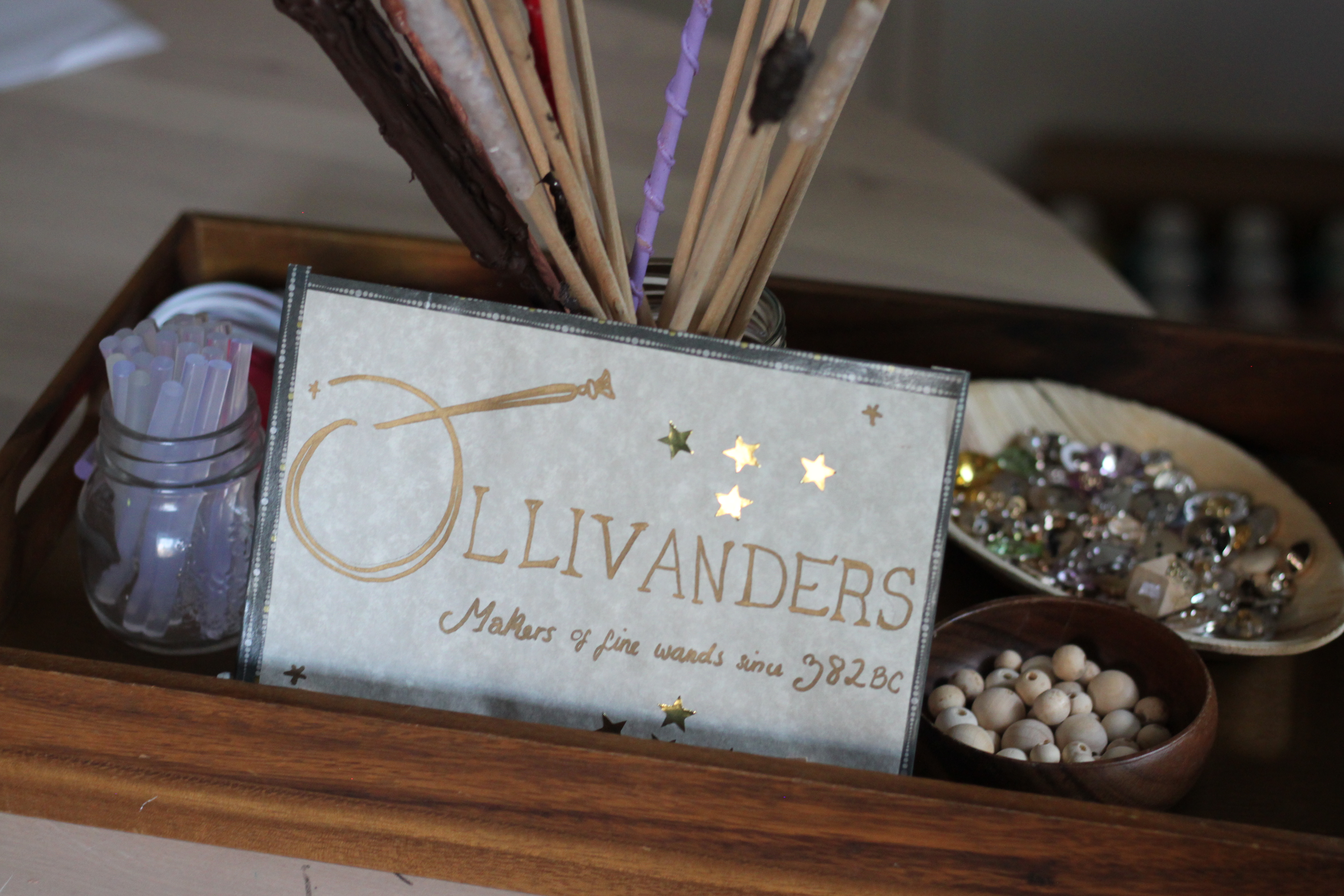
I’d love to hear from you! Have you used Harry Potter as a study unit in your homeschool curriculum? How can you follow your child’s interests? Whether you are homeschooling, unschooling, or your kids attend school are there ways you can take their interest in a particular topic to a deeper level? Please leave your comments below or over in our (free & awesome) FB community Love Parenting with Avital
↓ ↓ ↓ ↓ ↓ ↓ ↓ ↓ ↓ ↓

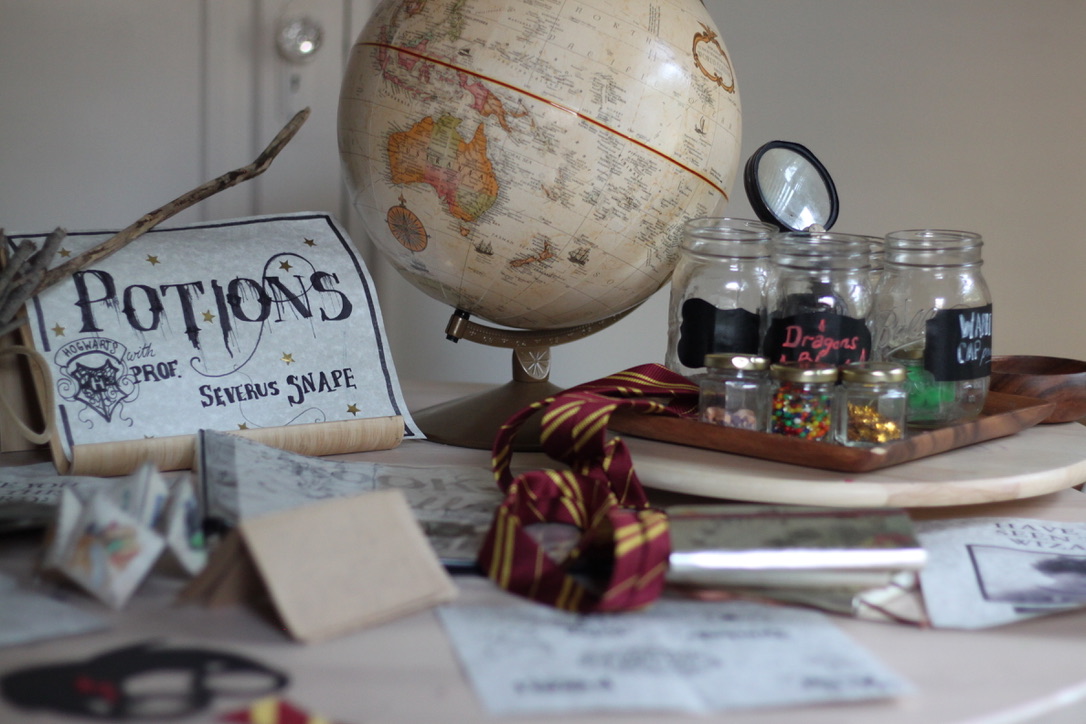


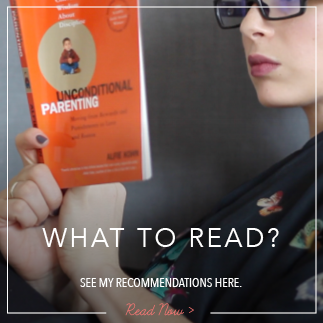
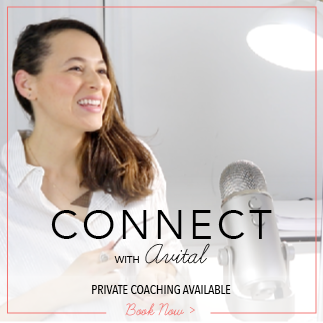


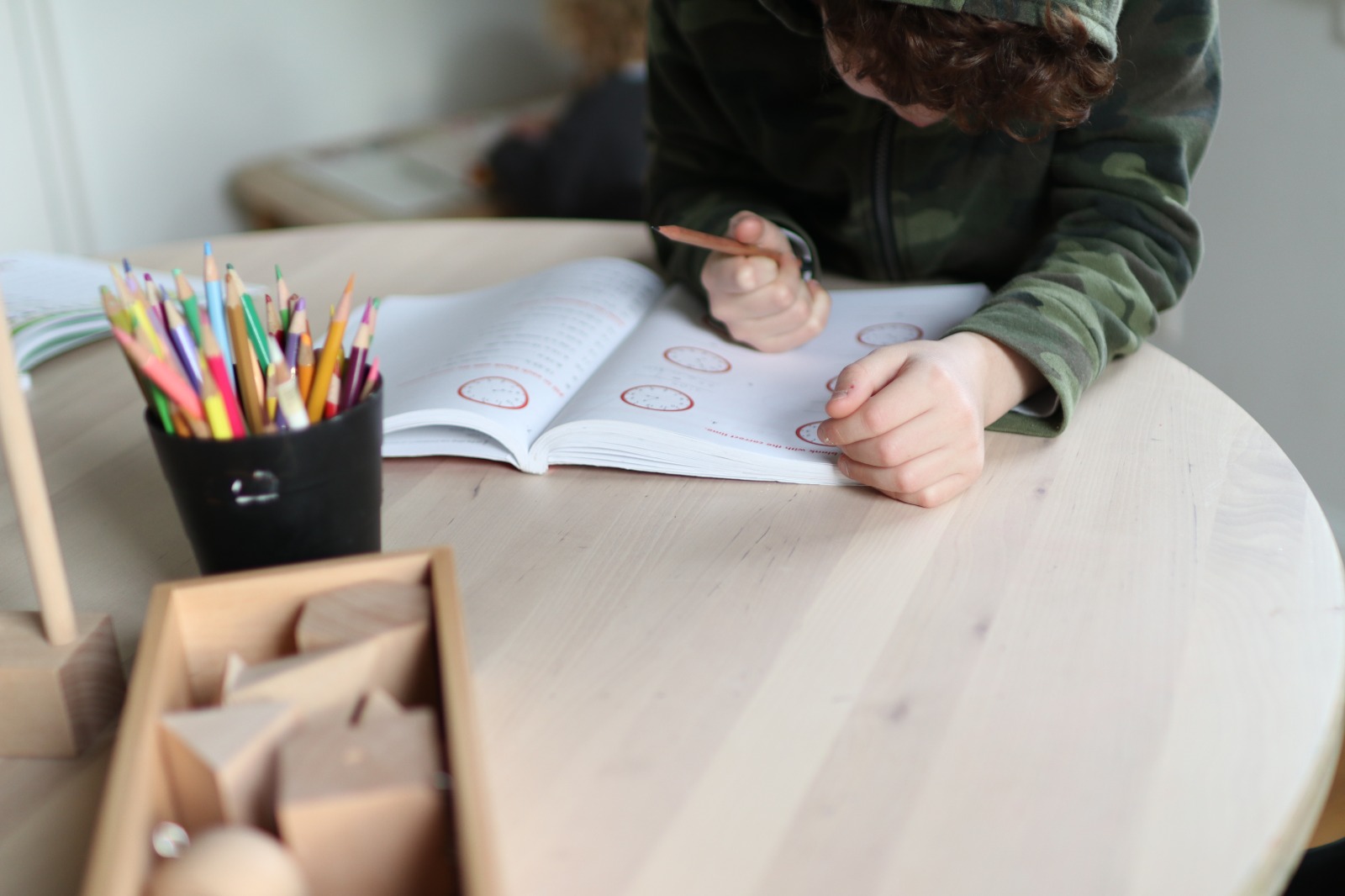

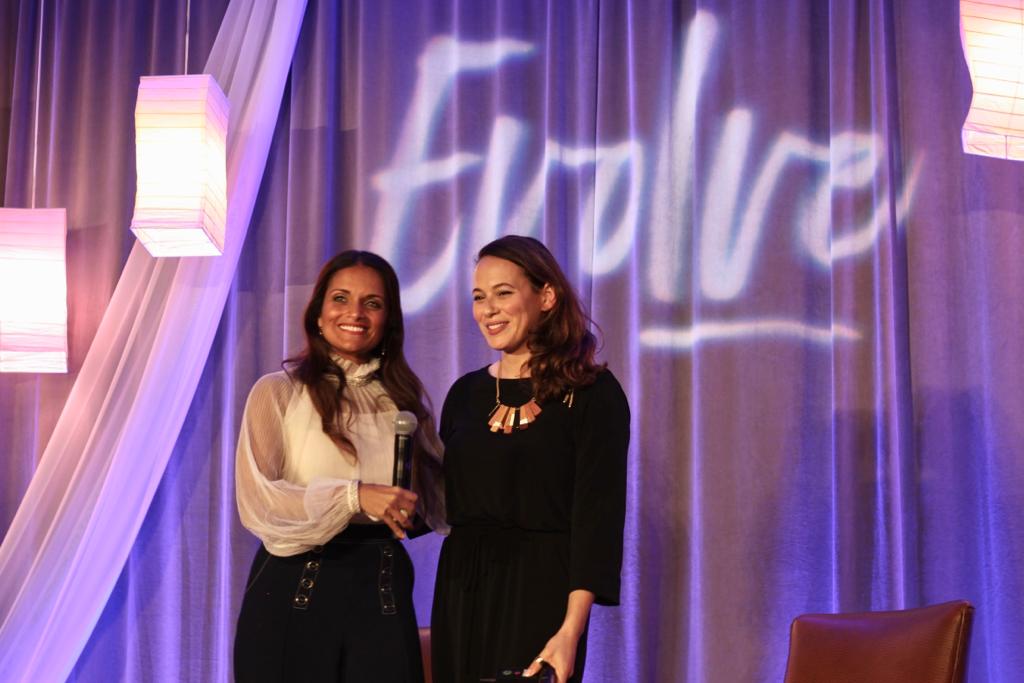
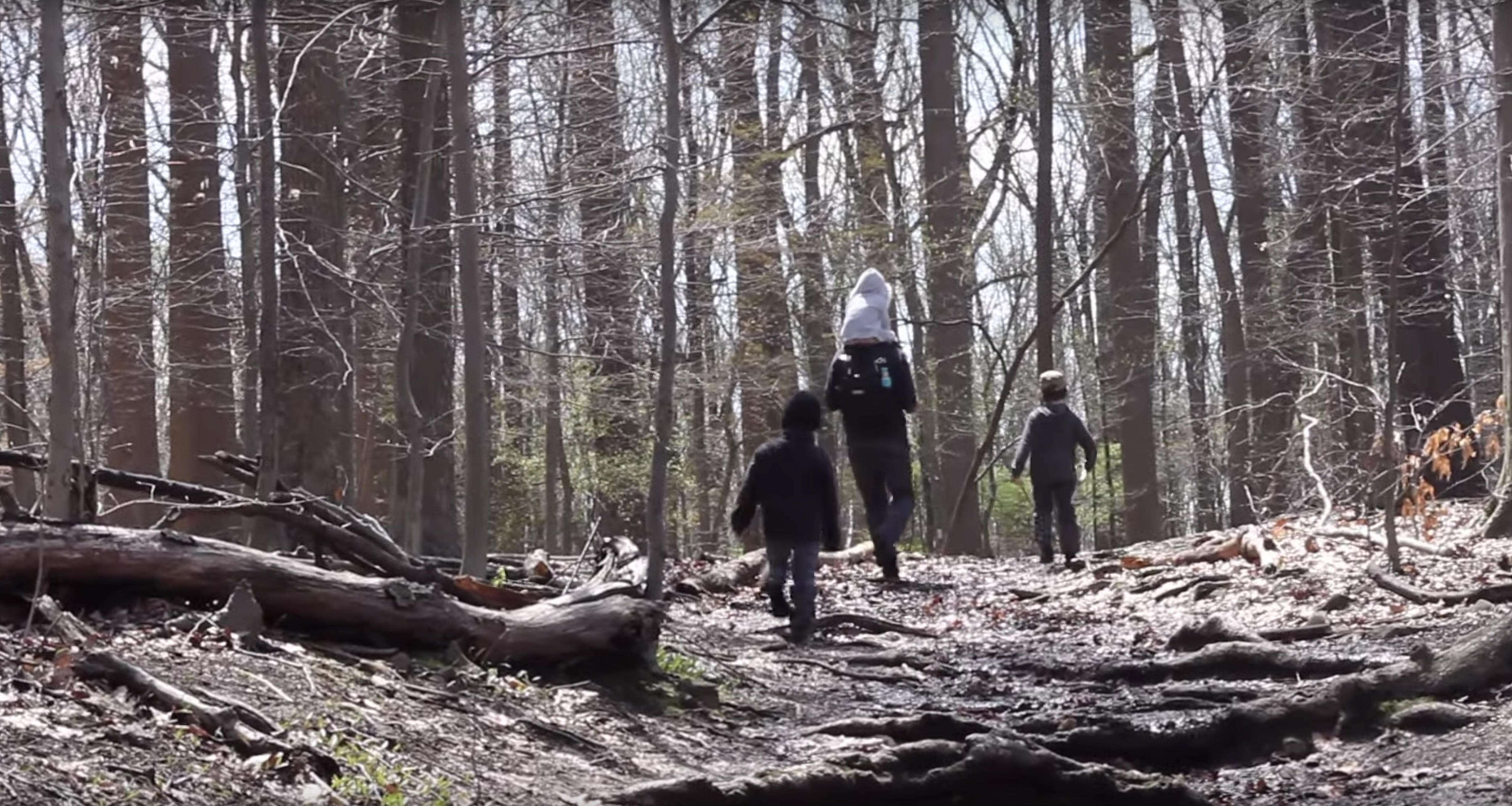

Wow! I figured I would just find the best play-based, child-led school I could find and go with that but after watching this I really want this for my kids! How exciting to really be able to follow their interests and expand on them in every way. I’m a bit nervous about how exactly I could up my artistic level as that is something I’m not yet that great at but this looks absolutely amazing and what I would want to do if I can make the jump to homeschooling/unschooling!
Dear Avital,
I have been following you for a while (on Youtube and your fantastic podcast), and I cannot thank you enough for what you brought into my life. I am a mother of two, and now I feel most of the time empowered, enlightened by your words and thoughts, when I felt overwhelmed and exhausted a few moths ago. I love how you are able to put your ideas, or complexe concepts into powerful sentences I can easily remember and reflect on.
I have been at home for the past two years, welcoming our second son, and I am a primary school teacher for deficient kids (going back to work in september!). I am thrilled to support my kids and my pupils in their passions, and I cannot wait for next week’s video!
I send you all my love from France, and thank you again for your amazing job,
xoxo
Alexandra
Alexandra! I am so thrilled to have you here and touched by your words 💕 thank you!
What do you do with multiple kids who have polar opposite passions? I’ll be homeschooling for the first time this year and I’ll have a 7th, 3rd & 1st grader. This looks like so much fun but incredibly hard ifI have to do it for 3!
Omg! Yes! While this was going on I was lucky that my other kids got really into it too. I have a weird little hack that might work for you too – but only because my kids birthdays are spaced throughout the year. I was focusing on (my eldest passion) Harry Potter which lead up to the Harry Potter party for his birthday. Maybe then we would naturally shift gears for the main focus to be my second child’s passion as we plan for *his* party… and so on throughout the year.
Just one thought I’m testing.
Also… we DO do other things were not single minded. So you might go for a field trip for ones kids interest (with all three of them) and the next week for another kids interest… same with curriculums / books or movies – alternating between their interests (argh! Complicated I know!). Go you for doing it!!!
Yes! It is so complicated! I also don’t think that this level of commitment is necessary for all interests. I think if we can get really into one of their passions about once a year and go all in experientially/ artistically etc than that is MORE than enough (and that’s just an arbitrary guess in terms of timeline)… Generally just supporting them in learning more and getting a few books out the library on the topic is wonderful and when further exploration is available, go for it! <3
So glad you asked this, I was coming on here to ask the same. I have 3 kids, all very close in age, and although they are all little, I can see that their interests are NOT similar. I was a teacher before I was a mom, so I understand how important it is to follow their interest and tie it into all they do, but I don’t think I would ever be able to go this deep due to the amount of planning and preparation it would take, which is a shame because going that deep is where I think you find your BEST learning… overwhelming, and yet so so inspiring. Thank you!
Wow! Your video is just so timing. I am a Mom of two, a 5 year old and 3 years old. I am a new homeschool Mom, and I do experience in some subjects where my daughter would just pretend that she is sleeping (😮) as I am still explaining! I am a working homeschool Mom( till August 2!) so I only get to teach in the evening. So I thought well maybe she truly is tired. But, low and behold, her eyes would suddenly lit up when I’d ask her about playing play dough!! It made me more excited to read the book you mentioned in the video, “The Brave Learner,” which I also just received TODAY!! Keep on making these kind of videos, Avital. Truly helpful to Moms like us. More blessings to you.
Oh that la so awesome to hear Shivaun! It’s hard but we can do it 💕
But….but….this IS what schools do. At least in my area anyway. So they can’t cater for the interests of every single child but they follow themes like “castles”, “celebrations”, “summer holidays” etc.
There are schools that have themes which is wonderful. And some even follow the children’s interests with an emergent curriculum that literally changes in response to the children’s interests. And some progressive schools – like those in Finland – do away with subject segregation and create project based learning. So all subjects are integrated and create meaning for the project at hand.
BUT – from what I understand, most schools still separate subjects like “math”, “English”, “science” and go through predetermined and standardized curriculums of those separate subjects. They’re not integrated into a meaningful “whole”. They’re a list of facts that kids need to know based on age. Nothing to do with what you’re curious about or interested in learning – just what Was decided to teach your grade this semester.
Do you see what I mean?